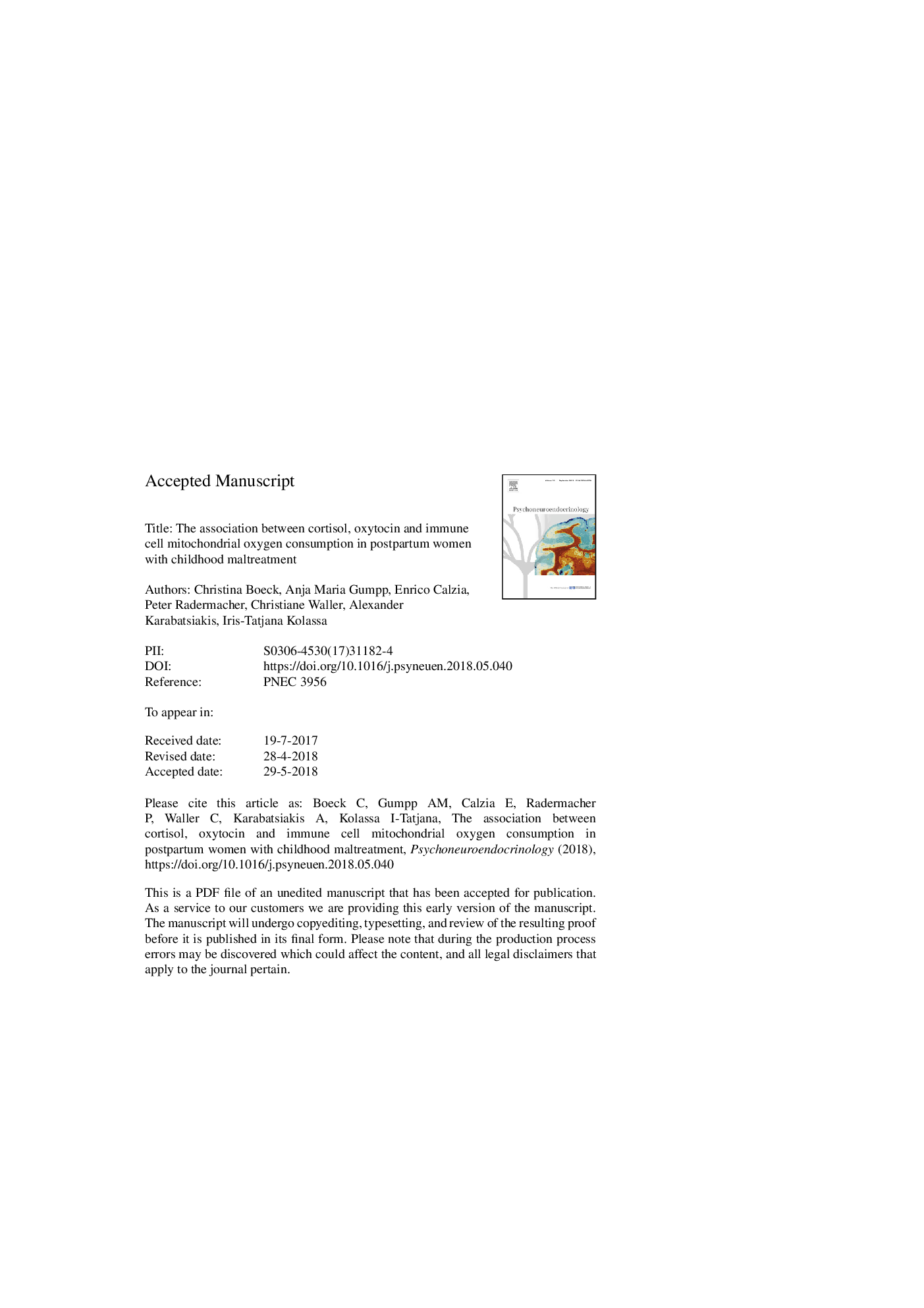| Article ID | Journal | Published Year | Pages | File Type |
|---|---|---|---|---|
| 6817489 | Psychoneuroendocrinology | 2018 | 39 Pages |
Abstract
Childhood maltreatment (CM) is associated with an increased risk for the development of psychiatric and somatic diseases in later life. Individual risk and resilience factors may, however, influence how deep psychological stress gets under the skin. We hypothesized that the stress-related hormone cortisol and the attachment-related hormone oxytocin constitute biological factors that might moderate the biological sequelae and long-term health outcomes associated with CM. As biological outcome, we thereby focused on immunocellular oxygen consumption, which we previously found to be increased with a higher severity of CM experiences. In a study cohort of Nâ¯=â¯49 postpartum women, we investigated the interaction between CM experiences, serum cortisol and plasma oxytocin levels, and the cellular oxygen consumption of intact peripheral blood mononuclear cells (PBMC) by high-resolution respirometry. Regression analyses revealed a significant interaction between the severity of CM experiences and cortisol as well as oxytocin on cellular oxygen consumption of PBMC three months postpartum: higher cortisol levels were thereby associated with an increase in oxygen consumption related to basal mitochondrial respiration and ATP turnover, while oxygen consumption related to basal mitochondrial respiration and ATP turnover were reduced with higher oxytocin levels in individuals with higher CM severity. These associations were not seen among women with no or low CM experiences. Together, the results suggest that cortisol and oxytocin might be associated with opposite effects on CM-related alterations in the bioenergetic profile of peripheral immune cells.
Related Topics
Life Sciences
Biochemistry, Genetics and Molecular Biology
Endocrinology
Authors
Christina Boeck, Anja Maria Gumpp, Enrico Calzia, Peter Radermacher, Christiane Waller, Alexander Karabatsiakis, Iris-Tatjana Kolassa,
